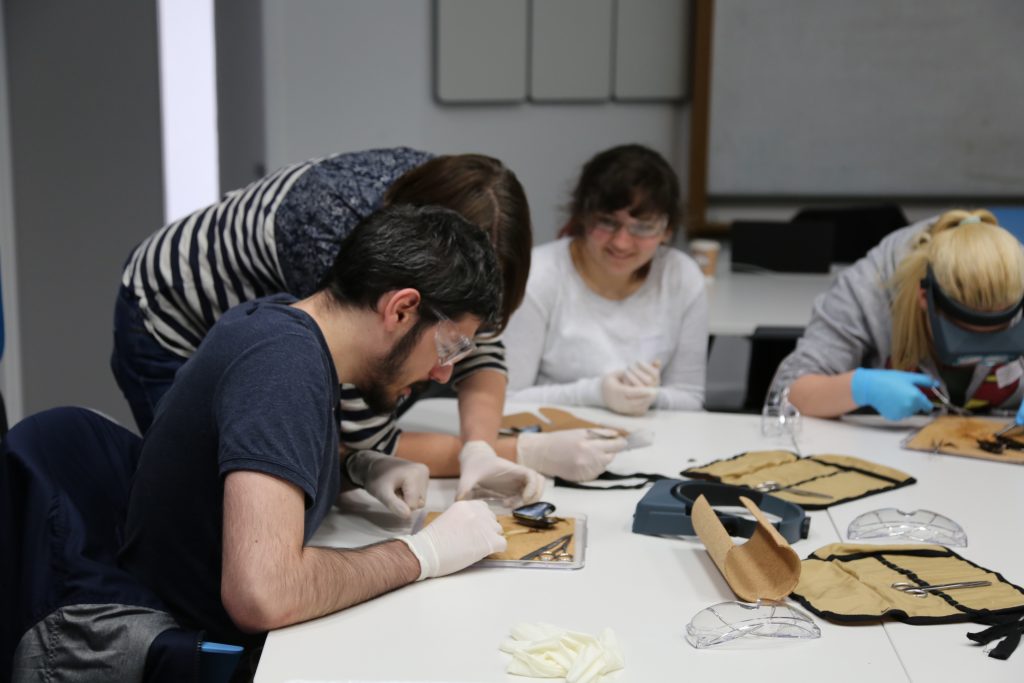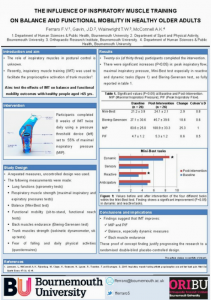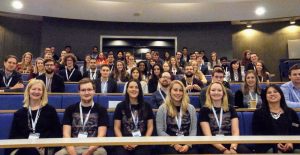Industrial Strategy
A little bit late this week, but that gave us the opportunity to include a reference to the Industrial Strategy, launched today. It has just been published and you can find it here. It sounds as if it hasn’t moved on much from the Green Paper – read our end of summer summary here.
Headlines, courtesy of Dods, are:
- Industrial Strategy Challenge Fund will invest £725 million in new programmes to capture the value of innovation
- first ‘Sector Deals’ – to help sectors grow and equip businesses for future opportunities
- 4 ‘Grand Challenges’ which will take advantage of global trends to put the UK at the forefront of the industries of the future.
Sector Deals will include construction, life sciences, automotive and AI the first to benefit from these new strategic and long-term partnerships with government, backed by private sector co-investment. Work will continue with other sectors on transformative sector deals.
4 Grand Challenges; global trends that will shape our rapidly changing future and which the UK must embrace to ensure we harness all the opportunities they bring, they are:
- artificial intelligence – we will put the UK at the forefront of the artificial intelligence and data revolution
- clean growth – we will maximise the advantages for UK industry from the global shift to clean growth
- ageing society – we will harness the power of innovation to help meet the needs of an ageing society
- future of mobility – we will become a world leader in the way people, goods and services move
To ensure that the government is held to account on its progress in meeting the ambitions set out in the strategy, an Independent Industrial Strategy Council will be launched in 2018 to make recommendations to government on how it measures success.
Linked to this, ahead of the budget, the PM announced a boost to research funding. The Government will make an additional investment of £2.3 billion in 2021/22 (total R&D investment £12.5 billion in 2021/22). They will also work with industry to boost R&D spending to 2.4% of GDP by 2027 (possible increase of £80 billion over next 10 years).
The Business Secretary, Greg Clark said: “Through our Industrial Strategy we are committed to building a knowledge and innovation-led economy and this increase in R&D investment, to 2.4 per cent of GDP, is a landmark moment for the country. The UK is a world leader in science and innovation. By delivering this significant increase as part of our Industrial Strategy, we are building on our strengths and working with business to ensure that UK scientists and researchers continue to push the boundaries of innovation.”
Budget and the fees review
And having mentioned the budget – we were expecting an announcement about HE fees and funding, but there wasn’t one. There was a hint about post-study visas. As you will recall, if you have been following the “national debate” since May, a “major review” was promised by the PM at the Conservative Party conference in October with a freeze on fee increases in the meantime and nothing has been heard since. Fee increases for were put on hold – so that there are currently no planned increases for 2018/19 or beyond. Wonkhe have noticed that the “red book” that comes out with the budget has confirmed that this freeze is planned for 2 years but nothing is said beyond that. So the review may still be on the cards, but maybe the budget was too soon, or too risky, a forum for that announcement.
And with that in mind, note this bit from the summary of the Lords Select Committee proceedings below “Cross-subsidy is worth a major inquiry in its own right.”
Parliamentary Questions
Following the Panorama programme disclosing alleged abuse of the student loan system, questions were asked in Parliament last week
Gordon Marsden: What safeguards her Department operates to prevent the abuse of student loan funding by private Higher Education providers. [113082]
Joseph Johnson:
- Higher Education Institutions that are designated for student support must, on an annual basis, meet robust standards for quality, financial sustainability, and management and governance.
- Designated Alternative Providers without their own Degree Awarding Powers are also subject to student number controls, limiting the number of students eligible for student support that they can recruit each year.
- The Department can and does use sanctions where breaches of the conditions of designation are identified, including the suspension or removal of designation for student support where we have serious concerns about providers.
- Following the passage of the Higher Education and Research Act, the Office for Students (OfS) will be established formally in January 2018. It will provide, for the first time, a single regulator for higher education providers regardless of how they are funded. The OfS will have powers to assess the quality of, and standards applied to all English Higher Education provision.
- The OfS will place a focus on students and greater emphasis on ensuring value for money for students and taxpayers. There will continue to be tough and rigorous tests for providers who want to enter the system and enable students from all backgrounds to receive funding.
Angela Rayner: What additional funding allocation her Department will receive for each of the next three financial years to fund the increased RAB charge resulting from the increase to post-2012 loan repayment thresholds. [113058]
Joseph Johnson:
- The Government has frozen tuition fees for academic year 2018/19 and for financial year 2018-19 has raised both the repayment threshold and the thresholds at which variable interest rates apply to borrowers in repayment.
- The repayment threshold will rise from £21,000 to £25,000 for the 2018-19 financial year (from 6 April 2018). Following the threshold change, interest will be charged at RPI for those earning below £25,000 (compared to £21,000 before) and at RPI+3% for those earning above £45,000 (compared to £41,000 before), with interest applied on a sliding scale for those earning between those two thresholds.
- The long-term cost of the student loan system is reflected in the Resource Accounting and Budgeting (RAB) Charge, which measures the proportion of loan outlay that we expect not to be repaid when future repayments are valued in present terms. In each of the financial years (a) 2017-18, (b) 2018-19 and (c) 2019-20, the RAB charge for higher education loans is expected to change from around 30% under the previous policy to between 40% and 45% under the new policy.
- The allocated budget for RAB expenditure forms part of the total resource departmental expenditure limit. It is disclosed within the depreciation figure set out within the annual report and accounts. In the 2016-17 annual report and accounts, this was forecast to be £3.5bn for 2017-18, £3.9bn for 2018-19 and £4.3bn in 2019-20. As in prior years, the 2017-18 budget and future budgets will be reviewed as part of the annual Estimates process and confirmed in the published Estimates documents.
- The cost of the system is a conscious investment in young people. It is the policy subsidy required to make higher and further education widely available, achieving the Government’s objectives of increasing the skills in the economy and ensuring access to university for all with the potential to benefit.
Gordon Marsden: What monitoring and scrutiny of student recruitment agents for private Higher Education and Further Education providers her Department undertakes. [113080]
Joseph Johnson:
- All higher and further education providers are accountable for their respective recruitment practices. If those breach the respective conditions for funding then a consequence may be regulatory sanctions or termination of their contract. Providers are subject to robust regular monitoring for standards for quality, financial sustainability and management and governance.
- And in the meantime, the House of Lords Economic Affairs Select Committee investigation into the Economics of Higher, Further and Technical Education continues. This week’s update comes from the oral evidence heard on 14 November.
Q: To what extent do you think technical education can be delivered through higher education institutions?
- Professor Patrick Bailey (DVC, London South Bank University): all the universities are delivering higher education courses that include enormous amounts of information directly relevant to workplaces. Most…ensure that all their students will have professional practice and some of the technical skills that are going to be required when they move into jobs afterwards. There is a move…to ensure that students are job-ready when they leave. There is a misconception that there are technical skills and pure academic subjects. Even those that would be defined as purely academic now have significant components that ensure that people are ready for a wide range of tasks. Many universities are also well directed towards developing the technical skills.
- Pam Tatlow (Chief Executive, MillionPlus): If you want to deliver learning and qualifications that match what employers want and the reality of students’ lives, whatever their age, there is a very good case for a more flexible funding system where you fund by credit or module. That would reflect the reality of the lives of students, both the younger ones and the older ones already in the workplace…. However, it would not be for the Chancellor to introduce the primary legislation we need to create a more flexible funding system. The Government missed an opportunity to do that in both the Education Act 2011 and the Higher Education and Research Act 2017.
- Professor Bailey: There is a subtlety here in that once students are enrolled on a three-year programme, universities are penalised in how they are judged if students do not progress through to that degree… across the sector overall we are losing the opportunity to upskill a wide range of people who could meet the needs of the industries around the UK, which are crying out for levels 4, 5 and 6 in particular.
- Professor Bailey: The universities are extremely well placed to take level 4s and upwards. However…the ability to have a break and to exit at an early stage without a penalty increases the opportunity for many, particularly part-time and mature students who are challenged in other ways. There is a continuum: the idea that it is either FE or HE is wrong. FE does not have either the expertise or facilities to deliver at level 6 and rarely at level 5. Crucially, more and more universities like mine are working closely with FE to ensure that students feel they have a choice, as they come through level 3, either to go to level 4 at FE or move to a higher education degree at a university. It comes back to giving choice and ensuring that students have the chance to develop skills to their maximum potential.
- Lord Burns: The same question has been on my mind. Are you saying that you can see a world in which universities are going to do both HE and FE work? I can see that FE cannot do the university work but over the years I have watched universities becoming involved in more and more different areas…with mergers, they are getting bigger and bigger. Is the end product here that universities will try to do everything over the age of 18?
-
Pam Tatlow: No.
-
Sir Anthony Seldon (VC, Buckingham University): I disagree…some universities will embrace FE. I think we will see a top tier—Oxford, Imperial et al−that becomes more research-focused, competing in the world tables and other, more regionally-based, universities that will come down to FE and even UTCs and academies and go all the way through. We do not know, but that is my sense: that the new binary divide will be between HE and FE but with less research and with high research at the top end. Who knows?
Is there a disparity in the available funding higher education and further technical education? If so, how would you address it?
- Professor Mike Thomas (VC, University of Central Lancashire): Yes, there is a disparity. I can tell you how we are addressing it…We feel that when you do an undergraduate degree—four years for engineering or five years for medicine and so on—you should also be allowed the opportunity to do an apprenticeship at the same time, so that when you qualify and graduate you may be, say, a four-year engineering degree-holder but you may also be a trained fitter or plumber. If you are doing construction, you could do joinery or carpentry. We tested this model internally in the university. We have 1,000 student start-ups at the university, which is quite a large number for the economy of Lancashire, creating about 3,000 jobs over three years, with a turnover of about £500,000 on average. Many of them come from fashion and the arts, because when they get their degree they set up on their own. When we piloted this internally at the university, we found that our art students, particularly fashion students, wanted to do a certificate in accountancy because they were setting up their own businesses, but they were not allowed to do it because it involved different funding or different institution.
- We are modelling a system in the university whereby students can do that. At the moment, we are picking up the fees. Engineers can train through a long-term apprenticeship levy. Arts and fashion students can train to get other types of qualifications. We do not take the hierarchical vertical view of learning; we take a horizontal model and work with 21 FE colleges so that our students can go there on Wednesday afternoons or spend four to six months in employment. The piloting with BAE involves them doing two years of a degree in the university, but in the final year they move to a levy and a degree apprenticeship, so that reduces their fee loans. They pick up an “Earn as you Learn” as they go along, and they graduate with a degree and an apprenticeship at the same time. We think that we meet the employer need.
- The difficulty is the silo payment; you have to have an EFA or an ESF payment or a student loan. We think there should be one payment and that undergraduates should be allowed to do apprenticeships and respond to the lifelong learning. For me, it is self-evident that people need support, in relation to what Peter said. We are living longer and people are doing different jobs. Even if they stay in the same firms, the technologies in that firm will change so they will need to relearn anyway as they go along, but those opportunities are not there. We are very much modelling a horizontal model.
- Lord Turnbull: I think you are telling us that we are going down a cul-de-sac in thinking of tertiary education as having these two divisions, HE and FE apprenticeships, and that we want to create something that is seen across this whole system… You heard in the previous session that you can go along the pathways and every time you hit a block there is some kind of regulatory funding decision to the effect that, “When you get here, you cannot get on to the next stage”.
The committee then moved on to discuss the blockages and how it could be easier for people to move across different models.
- Professor David Latchman: This emphasis on the student and the student outcome is the key, because we have a system that is basically like the school system: you leave school at 18 and you will never go back. Our system is predicated on you requiring an undergraduate degree, 18 to 21, and never needing that again. Somehow or another, within the funding envelope or in some other way, we have to get to this lifelong learning issue, because the world is changing. What you do at 21 is not going to be what you do at 51, and to assume that you will never need to get other qualifications between 21 and 61 or whatever is madness in today’s world.
Q: What kind of future do you see for degree apprenticeships?
- Professor Bailey: I can see an engagement from business and industry more generally, which has picked up as they have had to pay the levy and have realised the financial implications and how it affects them, and that has been really positive.
- Pam Tatlow: The Institute for Apprenticeships does not understand HE standards, which is a major issue…there is an inflexibility in the Government’s approach to the use of the apprenticeship levy. There could be some relaxation…. There is a bit of a numbers game going on when actually we need degree apprenticeships to be allied with programmes where it makes sense. We are dependent on the employers recruiting to degree apprenticeships; it is not our gig. We need the employers to be convinced that this is what is going to deliver for them.
- Professor Bailey: The concern…is that a tranche of standards have been identified by the professions, which need to be superimposed on the qualification requirements that we have for degrees—in particular critical thinking, working in teams, synthesising information and taking complex problems.. there are high-level skills that would benefit anybody within a technical discipline, but how the technical part is defined is rather more specific within those particular disciplines. They can complement each other, but it makes it a very complicated process for us, because we have to run the whole degree programme and map that across a different set of standards that the apprenticeships require. However…I think it has provided an additional incentive for employers to become engaged in how we develop qualifications.
TEF
- Professor Bailey: [we] were aware that we were using very weak proxies to identify the quality of education in the UK. We did our very best to combine the crude metrics that were used to identify which rating institutions should get with the provider statement that went alongside it. The thing that came across really strongly from the teaching excellence framework was how little difference there was in the quality of provision. At the beginning, it was assumed that there were outstanding institutions and others that were performing very poorly and it was important to identify those extremes. In the end, you obtained what I will call a black mark if you were 2% below the standard in an area being measured, such as the quality of the facilities. You got a gold star if you were 2% above that. That tells us that the differences across the sector were very much smaller than people outside higher education had perceived…As to how it has helped students, it is probably slightly limited because the range is smaller than had been perceived at the outset.
Cross-subsidisation of research
- Lord Darling of Roulanish: Jo Johnson, the Universities Minister, said recently that he wanted to see a reduction in the cross-subsidy between courses. What is your view on that?
- Professor Simon Marginson: Cross-subsidy is worth a major inquiry in its own right. It is a complex problem, and it is an information issue in part. The tendency has been for us to find every way and means we can to subsidise and build research, because research is not only integral to the role of universities but has become central to their national and global competition…Of course, teaching and research are integrally related. It is not as if, when you subsidise research, you do nothing but teaching. It becomes a more complicated problem. Some disciplines are cross-subsidised by others. In many institutions, I suspect that the relatively low-cost business programmes, which generate high volumes of students, with large numbers of international students paying full fees and so on, subsidise a lot of other activity.
OfS consultation (part 3)
We continue our series on the OfS consultation on the future regulatory framework with the 4th objective of the OfS on value for money for students and a look at how the OfS will regulate the HE market (as opposed to how they will regulate individual providers, which we will come back to in a future update).
Objective 4: that all students, from all backgrounds, receive value for money
- “Providers have a responsibility to ensure that students are able to secure value for money for their investment in their education, just as students have a responsibility to engage with their own learning and take the opportunities higher education offers.”
- “Transparency is also central to promoting value for money for students and protecting their rights, shining a light on provider activities and ensuring they are held to account. Students must be assured that the investment they are making in their future is worthwhile, and will be able to challenge institutions that do not deliver on their commitments.”
- Under the management and governance condition (see the section on this below), providers in the Approved categories will be expected to be demonstrably responsible for operating openly, honestly, accountably and with integrity, and will be required to publish a statement on the steps they have taken to ensure value for money for students and taxpayers which provides transparency about their use of resources and income. Providers should design this statement to allow students to see how their money is spent, following examples from other sectors, such as Local Authorities publishing breakdowns of how Council Tax is spent. ….Where there are substantial concerns the OfS may carry out an efficiency study to scrutinise whether a provider is providing value for money to both its students and the taxpayer.”
- “Higher education providers are autonomous institutions, and they are solely responsible for setting the salaries of their staff. However, the taxpayer is the sector’s most significant single funder and there is a legitimate public interest in their efficiency, including of senior staff pay. There will be a new ongoing registration condition requiring providers to publish the number of staff paid over £100,000 per annum, and to explain their justification for pay above £150,000.”
- “Arrangements will be made for the publication of data on senior staff remuneration, including in relation to protected characteristics such as gender and ethnicity. Where issues with senior staff pay lead to substantiated concerns over governance, the OfS will be able to arrange for efficiency reviews into the providers.”
| Consultation question: What more could the OfS do to ensure students receive value for money? |
Market regulation – Chapter 2
“Effective competition compels providers to focus on students’ needs and aspirations, drives up outcomes that students care about, puts downward pressure on costs, leads to more efficient allocation of resources between providers, and catalyses innovation. The higher education sector in England is well suited to market mechanisms driving continuous improvement “
“It does not, however, follow from these features that an entirely laissez-faire approach is appropriate. Higher education is a service unlike any other:
- there are almost never repeat “purchases” of the same type of higher educational courses by an individual student – the market is in most cases a one-shot game
- many of the primary benefits to the student (for instance improved learning, knowledge, and skills, greater earnings and career prospects, and personal fulfilment) are not received immediately; they are spread out over their life time. This exposes the market to distortions such as time inconsistency (where students’ preferences change over time) and temporal discounting (where students value the benefits of higher education less because they occur in the future)
- similarly, the cost of higher education is often not paid immediately, but rather paid for after through graduate repayments, which in most instances are subsidised by the state. This too, creates temporal distortions, and exposes the sector to moral hazard (where students may take greater risks because they do not necessarily bear the full cost of the degree)
- there are (currently) significant information asymmetries, and prospective students often make decisions with limited reliable information
- in the case of undergraduate degrees, there is a price cap in place for some providers. In practice, providers sometimes compete in terms of the grades they require to admit students, rather than on price
- institutional failure has significant repercussions for current, past, and (in some cases) potential future students, as well as wider social and political consequences. This is why the OfS’s regulatory framework is designed to prevent sudden, unplanned market exit (in particular through its approach to early warning monitoring), and support students to continue their studies if their original provider can no longer deliver their course. The creative destruction witnessed in more traditional markets, though still a powerful and relevant tool, has the potential to carry greater costs
- there are both private and non-profit organisation competing in the provision of similar services”
Student engagement: “The OfS will engage with students to ensure the student voice is not only heard clearly, but that students actively shape the OfS and – by extension – the sector itself. Alongside the student representation on the Board and Student Panel, the OfS will seek the input of individual students and their representative bodies, including student unions.”
The Teaching Excellence and Student Outcomes Framework (TEF): “In accordance with the provisions set out in HERA, a statutory Independent Review of the TEF will likely take place in academic year 2018/19 and will report in time to influence the assessment framework for assessments taking place in academic year 2019/20 (TEF Year 5). Depending on the findings of the Independent Review and of the subject pilots, this will also be the first year of subject level TEF. The assessments taking place in academic year 2019/20 will therefore constitute the completion of the TEF development process. This will be a significant milestone for the TEF, which has the potential to evolve over time as the Research Excellence Framework (REF) has done.”
Proposed on-going condition: Condition P: “The provider must participate in the Teaching Excellence and Student Outcomes Framework (TEF).”
| Consultation question: Do you agree or disagree that participation in the TEF should be a general condition for providers in the Approved categories with 500 or more students? |
Removing unnecessary barriers to entry (for new providers that meet a high bar): “The OfS and HERA will enable new providers in particular through the mechanisms below:
- Simplification of the regulatory landscape:
- No requirement for a track record
- Increased options for market entry
- Recognition of diversity
- Reduction in burden
- Grant funding and registration fees
- Validation”
Accelerated courses: ”HERA includes powers for the Government (subject to approval by Parliament) to set the annual tuition fee cap – for accelerated courses only – at a higher level than their standard equivalent. This should incentivise more providers to offer accelerated courses, increasing choice for students. At the same time, the cost for a student taking an accelerated course which is subject to the new fee caps will be less than that of the same course over a longer time period. The Government will consult shortly on specific proposals for accelerated courses.”
Teaching grant: “The teaching grant is designed to support a range of activities and provision …The majority of the funding is used to support provision where the cost is greater than the amount received as tuition fee income either because the course is costly to provide, because the location brings about additional costs or additional opportunities, or the provision is highly specialised, as with the support provided to our world-leading specialist institutions. The teaching grant supports efforts to improve social mobility by widening access to under-represented or disadvantaged students and ensuring their continued participation and success in higher education. Funding also supports innovation and the national academic broadband infrastructure. The OfS will continue with this approach, but it will also wish to deploy the teaching grant strategically, taking into account Government priorities. This will enable it to influence sector level outcomes“
Widening Participation – Parliamentary question
Q – David Lammy (Lab): Whether she has made an assessment of the effectiveness of steps taken by Oxford and Cambridge Universities to improve access and widen participation from under-represented groups; and if she will make a statement.
- A – Joseph Johnson (Con):. …the Director [of Fair Access (DfA)] negotiates with institutions to ensure that Access Agreements are stretching and appropriately demanding. Higher Education Institutions are independent from Government and autonomous – legislation specifically precludes Government from interfering with university admissions.
- In our guidance to the DfA, published in February 2016, we asked for the most selective institutions, which include the University of Oxford and the University of Cambridge, to make faster progress on widening access, and to ensure their outreach is more effective. The guidance acknowledged that within this group of institutions there is wide variation, with some demonstrating little progress.
- Access agreements for the 2018/19 academic year show that the University of Oxford and the University of Cambridge plan to spend over £22 million on measures to further improve access and student success for students from disadvantaged and under-represented backgrounds.
- Following the introduction of the Higher Education and Research Act, from January 2018, the Office for Students (OfS), with a new Director for Fair Access and Participation appointed by my Rt Hon. Friend, the Secretary of State, will take on responsibility for widening participation in higher education. The OfS will have a statutory duty to promote equality of opportunity across the whole lifecycle for disadvantaged students, not just access. As a result, widening access and participation will be at the core of the OfS’ functions. In addition, our reforms will introduce a Transparency Duty requiring higher education providers to publish application, offer, acceptance, drop-out and attainment rates of students broken down by ethnicity, gender and socio-economic background. This will shine a spotlight on those higher education institutions that need to go further and faster to widen participation in higher education.
Consultations
Click here to view the updated consultation tracker. Email us on policy@bournemouth.ac.uk if you’d like to contribute to any of the current consultations.
Subscribe!
To subscribe to the weekly policy update simply email policy@bournemouth.ac.uk
JANE FORSTER | SARAH CARTER
Policy Advisor Policy & Public Affairs Officer
65111 65070
Follow: @PolicyBU on Twitter | policy@bournemouth.ac.uk



 Karen was delighted to receive the Herbert Walton Award for her research. This award, “awarded at the discretion of the judges, recognises an excellent PhD dissertation submitted during the year at Doctorate level”, and the criteria reflect relevance to the practice of the profession.
Karen was delighted to receive the Herbert Walton Award for her research. This award, “awarded at the discretion of the judges, recognises an excellent PhD dissertation submitted during the year at Doctorate level”, and the criteria reflect relevance to the practice of the profession.








 #TalkBU is a monthly lunchtime seminar on Talbot Campus, open to all students and staff at Bournemouth University and free to attend. Come along to learn, discuss and engage in a 20-30 minute presentation by an academic or guest speaker talking about their research and findings, with a Q&A to finish.
#TalkBU is a monthly lunchtime seminar on Talbot Campus, open to all students and staff at Bournemouth University and free to attend. Come along to learn, discuss and engage in a 20-30 minute presentation by an academic or guest speaker talking about their research and findings, with a Q&A to finish. 

















 Beyond Academia: Exploring Career Options for Early Career Researchers – Online Workshop
Beyond Academia: Exploring Career Options for Early Career Researchers – Online Workshop UKCGE Recognised Research Supervision Programme: Deadline Approaching
UKCGE Recognised Research Supervision Programme: Deadline Approaching SPROUT: From Sustainable Research to Sustainable Research Lives
SPROUT: From Sustainable Research to Sustainable Research Lives BRIAN upgrade and new look
BRIAN upgrade and new look Seeing the fruits of your labour in Bangladesh
Seeing the fruits of your labour in Bangladesh ECR Funding Open Call: Research Culture & Community Grant – Apply now
ECR Funding Open Call: Research Culture & Community Grant – Apply now ECR Funding Open Call: Research Culture & Community Grant – Application Deadline Friday 12 December
ECR Funding Open Call: Research Culture & Community Grant – Application Deadline Friday 12 December MSCA Postdoctoral Fellowships 2025 Call
MSCA Postdoctoral Fellowships 2025 Call ERC Advanced Grant 2025 Webinar
ERC Advanced Grant 2025 Webinar Update on UKRO services
Update on UKRO services European research project exploring use of ‘virtual twins’ to better manage metabolic associated fatty liver disease
European research project exploring use of ‘virtual twins’ to better manage metabolic associated fatty liver disease